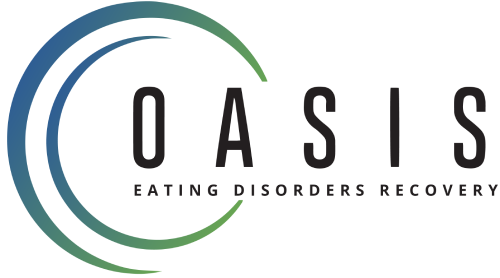Eating disorders are serious mental illnesses that can have a profoundly negative impact on a person’s physical and mental health. Despite increased awareness about eating disorders, many people still don’t understand the complexities of these illnesses. This can lead to insensitive comments or remarks from family, friends, and even strangers that are hurtful and damaging.
It’s important to be aware of the things you should never say to someone with an eating disorder. Statements like these can be triggering and cause feelings of shame and guilt, making it harder for the person to seek help and recover. This article will discuss some of the things to avoid saying to someone with an eating disorder:
“You Look Healthier!”
A comment that implies that someone looks healthier can be seen as a judgment on their appearance and can be interpreted as an accusation of not being healthy enough. It can also imply that a person’s eating disorder is visible and it can be an uncomfortable reminder of how their disorder has impacted their physical appearance. Additionally, it can be interpreted as a suggestion that they should continue their unhealthy habits in order to look better.
“Have You Taken Your Meds?”
This question can be seen as intrusive and insensitive, as it implies that the person has a mental illness and needs to take medication to manage their symptoms. Furthermore, it can be seen as a judgemental and potentially shaming question, as it implies that the person has a problem that needs to be managed with medication.
In addition, this question can make the person feel as though they are being treated differently because of their eating disorder. It can also be seen as a reminder of their disorder, which can be emotionally triggering. Therefore, this question should be avoided when interacting with someone with an eating disorder.
“Why Don’t You Go on a Proper Diet?”
This phrase implies that the individual is not already on a “proper” diet and puts pressure on them to change their eating habits. It can be extremely damaging to someone who is already struggling with their eating disorder, as it may bring negative body image and self-worth issues to the surface.
“Isn’t That Too Much Food for One Person?”
This phrase implies that the person is eating too much, which can be incredibly damaging for someone with an eating disorder. Eating disorders are characterized by an obsession with food and body image, and comments like this can further perpetuate those unhealthy thoughts and behaviors. Additionally, this phrase can be seen as a judgment on the person’s eating habits, which can be hurtful and discouraging.
“Just Eat Like a Normal Person and You’ll Be Fine!”
One of the most harmful things to say to someone with an eating disorder is “Just eat like a normal person and you’ll be fine!” This phrase is incredibly damaging to someone with an eating disorder, as it ignores the complexities of the condition and fails to recognize the difficulty of the situation.
It implies that the person with an eating disorder is intentionally avoiding food, and that the solution is simply to start consuming the same amount of food as a “normal” person. This oversimplifies the situation, as eating disorders can have a range of causes and complicated biological and psychological factors. The person with an eating disorder may not be able to simply start eating more, and may need professional help to address their condition.
Conclusion
When talking to someone with an eating disorder, it’s important to be mindful of the words you use. Avoid making comments about someone’s body or physical appearance, or commenting on the amount of food they’re eating. Even if a comment seems harmless, it can still be triggering for someone with an eating disorder.
It’s also important to avoid giving advice or telling someone what to do. It can be helpful to offer support and listen to what the person is saying, but refrain from giving unsolicited advice. Eating disorders are complex and can be difficult to overcome, and it’s important to allow the person to make their own decisions about their treatment and recovery. If your loved one is open to discussion, you could recommend a trusted eating disorder recovery clinic near you.
Oasis Eating Disorders Recovery is an eating disorder recovery clinic in Fresno that provides treatment and support through programs that can help restore one’s health and wellness. Ask us about our program today!

